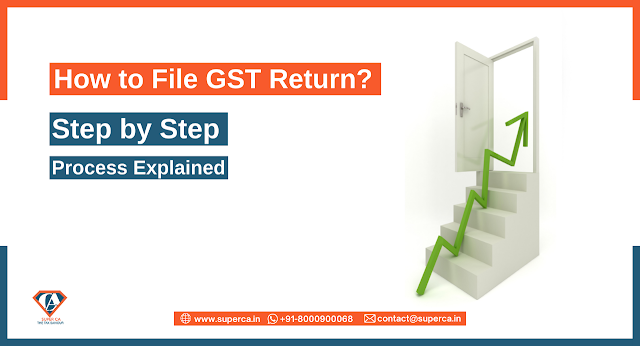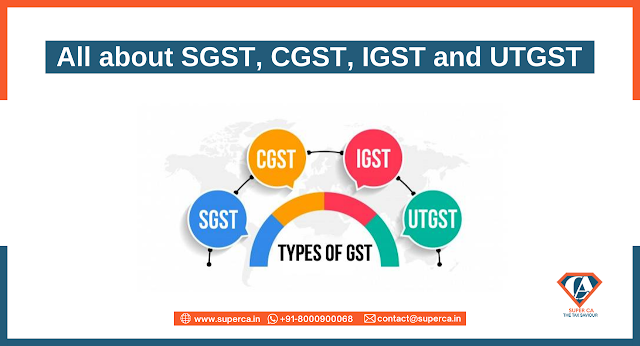All You Need To Know About Online GST Registration
Online GST Registration is a process for applying for a unique GSTIN from the GST Portal. It requires no manual intervention or no physical paper submissions. A very simple online procedure has been prescribed for this.
GSTIN is required by every registered taxpayer in order to collect and pay GST on the outward supplies i.e. sales and for claiming ITC on the inward supplies i.e. purchases. The registration process is usually finished within 4 to 6 working days and a 15-digit GSTIN (GST identification number) and a certificate of registration are allocated by the GST department.
Benefits of having Online GST registration
➢ Less compliance
The number of separate compliances is lesser now with GST. Under the previous tax regime, businesses had to file multiple returns accorded with different indirect taxes – VAT, excise, and service tax. As GST is a unified and singular tax regime, the number of filings has come down, making it less hassle for entities to file a return.
➢ Eliminates the cascading effect of tax
The pre-GST period saw a cascading effect of taxes, which the implementation of GST eliminated. GST has almost entirely put an end to the tax-on-tax impact on goods and services. By taking in all the indirect taxes under its wing, GST has managed to bring down the cost of goods and services. Thus uniformity of taxes under GST is one of its crucial benefits.
➢Facility to claim the Input tax credit
Registered persons can claim the Input tax credit on the purchase of goods & services & can utilize the same for payment of taxes due to the supply of goods or services.
➢ Interstate Supplies without restrictors
Registered persons can make Interstate sales without any restrictions.
➢ Recognition
Businesses that have registered themselves with the requirements of GST would be recognised in the eyes of the law. The business will be legally authorized to collect taxes from its customers and pass on the credit of the taxes paid.
Types of GST registrations
Various online GST Registration types are present under the GST regime. Types of registration completely depend on the nature of the business and your identity.
Normal Taxpayer
As per the GST rules, when the Threshold limit of Rs.40 lakhs (Rs 10 lakhs for special category states present in hill states and North-Eastern states) is crossed, it is compulsory for a business/supplier to get registered under GST as a normal taxpayer. Most of the businesses in India fall under this category No deposits are necessary from businesses/individuals filing GST in this category. There is also no expiry date for taxpayers who fall under this category.
Casual Taxable Individual :
Individuals who wish to set up an occasional/seasonal shop i.e they do not have a fixed place of business can opt for this category of registration.
Non-Resident Taxable Individual
All non-resident taxable persons i.e people who reside outside India, but supply goods to individuals who stay in India, can opt for this. These individuals are required to obtain GST registration in India, irrespective of aggregate annual turnover or any other criteria 5 days prior to the commencement of business. Similar to the Casual Taxable Individual type, they must pay a deposit equal to the expected GST liability during the time the GST registration is active.
Composition Taxpayer
The composition scheme has lesser compliance compared to other types. In this scheme, the businesses need to deposit a fixed yearly payment irrespective of their actual earnings. They will not be able to claim ITC under this category. This scheme is currently applicable to businesses with an annual aggregate turnover of Rs. 1.5 crores or less (lower limit is applicable in case of special category states)
Documents required
The following documents are required while going for online GST registration –
➢ PAN of the Applicant
➢ Aadhaar card
➢ Proof of business registration or Incorporation certificate
➢ Identity and Address proof of Promoters/Director with Photographs
➢ Address proof of the place of business
➢ Bank Account statement/Canceled cheque
➢ Digital Signature
➢ Letter of Authorization/Board Resolution for Authorized Signatory
Final Words
The benefits are far-reaching and are not only business-friendly but consumer-friendly as well. Enforcement of the GST Act has also made tax administration transparent and corruption-free.
If the organizations fulfilling the eligibility criteria carry on business without registering under GST, it will be an offence under GST and heavy penalties will apply. Also, if GST authorities catch any taxable individuals applying late for GST registration, a penalty will be levied.





Comments
Post a Comment